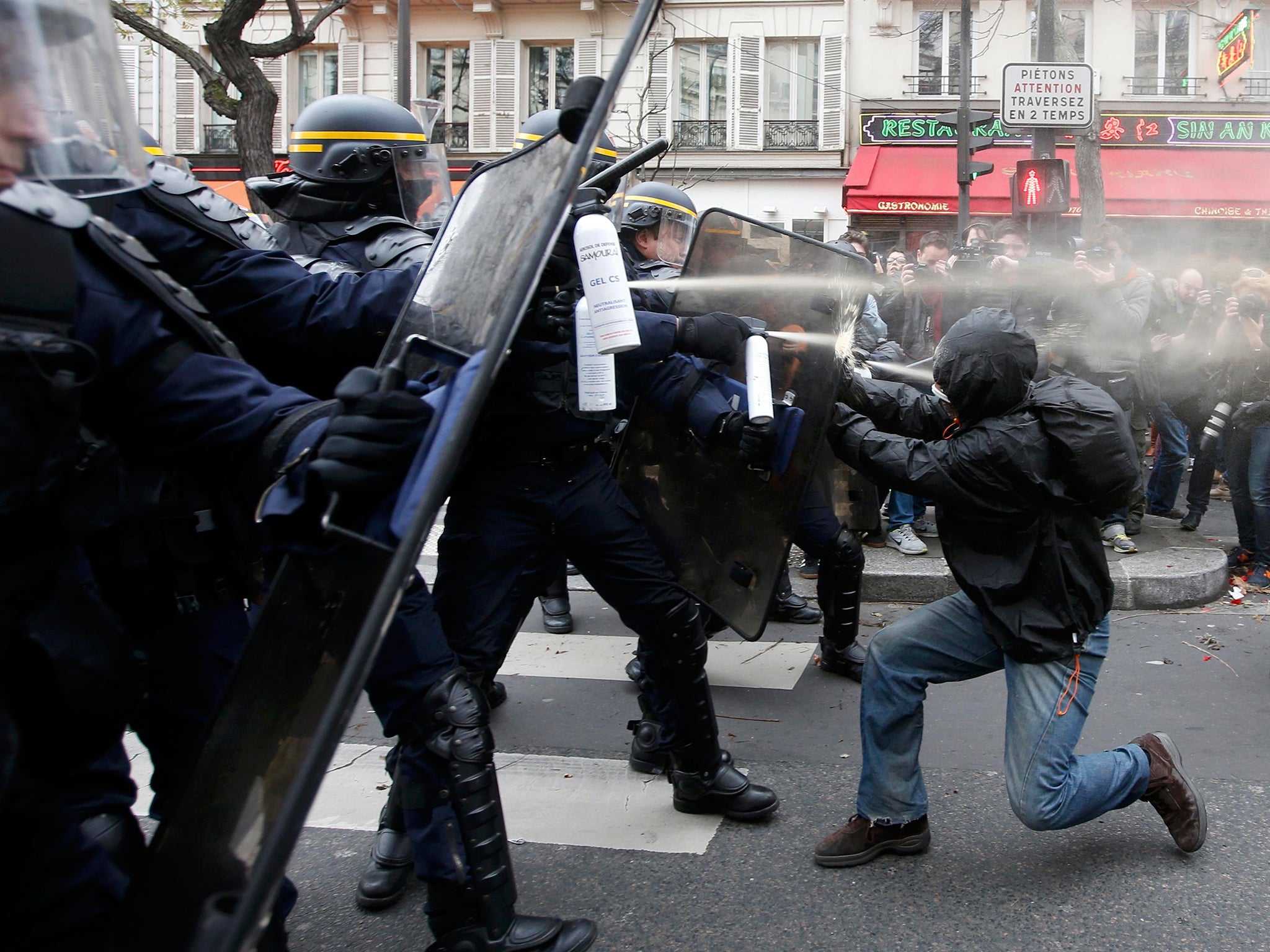Don't bother protesting at the Paris climate change conference - there are better ways to tackle global warming
Here are three things we should be fighting for instead

This week sees 196 delegates meet to try and establish a new framework for international action on climate change. In an effort to push action on this problem, more than 2,100 protests have been held worldwide with estimates of up to 570,000 people taking part. Yet we can comfortably predict these protests will make no difference to the negotiations or long-term warming trends. How is it that half a million people can make no difference? The problem is twofold.
First, the targets of these actions are resistant to such political pressure. In most large-scale spectacles of international negotiation – climate change or otherwise – the hard work of negotiating has been largely done in the months before. The spectacle of world leaders flying in to sign agreements is mostly symbolic. Equally, the negotiators are under pressure from their governments, not from protesters. Indeed, it is hard to imagine how the negotiators might feel more direct pressure from the protestors.
This leads to the second problem: the tactics chosen within these big spectacle protests are ineffective. Marches, when they are not neutralised in advance by odious planning, are often boring. The Paris activists, in an effort to make things more exciting, have gamified the protests: teams are organised, points and badges are awarded, and the police have been deemed “Team Blue”. With a crackdown on protesters in the wake of the Paris attacks, activists left hundreds of shoes in a central square to make their presence felt. While giving rise to some nice photos, it was hard to see how this affected the negotiators.
Indeed, throughout the protests, one gets a real sense that the aim is to be fun for the participants, rather than disruptive for the politicians. This may make sense during the initial stages of a new political issue, when raising awareness and bringing more people on board are key objectives. But climate change activism is far past the raising awareness stage.
What then can be done? There is no simple answer, unfortunately, but here are a few better ways activists can spend their limited resources. First, there is targeted resistance against new fossil fuel infrastructure. A full 65% of greenhouse gas emissions come from fossil fuel use, and if we are to stop climate change, we must stop building new fossil fuel-based infrastructure. This means resisting the construction of new oil wells, new pipelines, and new fracking projects. As one excellent piece recently put it, this means activists “would need to be skilled not so much in media work but in training blockaders and maintaining blockades.”
Second, we can imagine ways to repurpose our existing infrastructure towards more environmentally-friendly ends. For instance, we can work towards transforming the automobile industry - a flexible and sophisticated industry that contributes immensely to the 14% of greenhouse gases that come from transportation. That productive power could be mobilised towards environmentally-friendly production of socially useful goods, without rapidly spiking up unemployment levels.
Lastly, we must contest the dominance of the work ethic and the economic imperative for rapid accumulation. Our economies are adept at increasing productivity, but these advances currently go towards making more goods rather than reducing work. The average American, for instance, can produce about 4 times as much as they could in 1950. But rather than reducing work, they now spend closer to 47 hours a week at their job. If we are to stop climate change, shortening the work week is essential For instance, one study found that if the American work week were reduced to European levels, energy consumption could be cut by 20 percent.
These three ways to more effectively combat climate change - targeted resistance, repurposing infrastructure, and fighting the dogma of work - should take precedence over the spectacle of the protest.
Alex Williams and Nick Srnicek are the authors of Inventing the Future: Postcapitalism and a World Without Work
Join our commenting forum
Join thought-provoking conversations, follow other Independent readers and see their replies
Comments
Bookmark popover
Removed from bookmarks